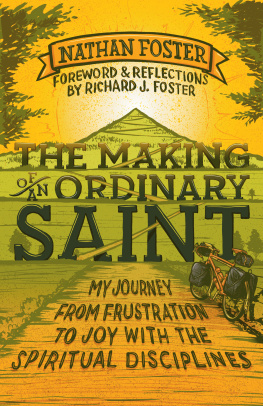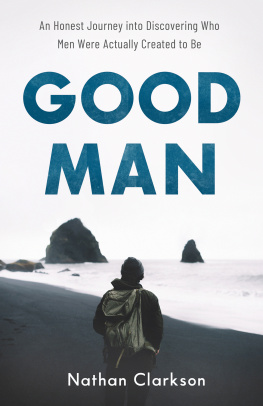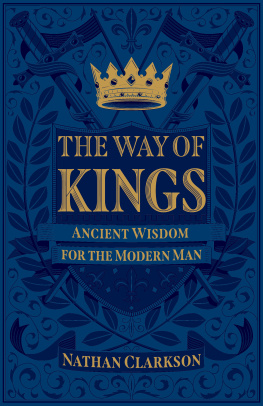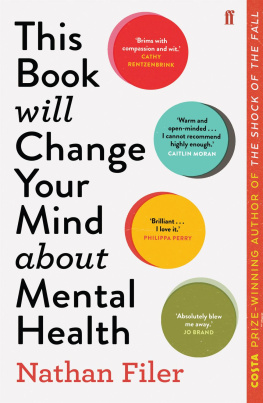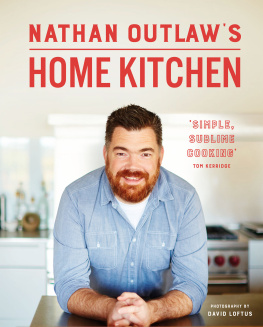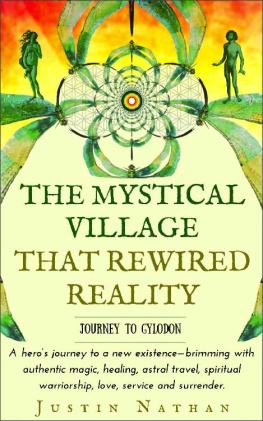Contents

1

It Never Hurts to Ask

My father loves the old adage It never hurts to ask! While I was growing up, he would often use the phrase with great enthusiasmusually because he wasnt the one doing the asking.
The truth is that sometimes it does hurt to ask. In fourth grade I asked Krista Johnson to be my girlfriend, and she laughed in my face. In fifth grade, when I tried to kiss Becky Randall, she slapped me.
A few childhood experiences were all it took for me to lose my youthful candor. I learned my place in the world. I learned how to avoid the pain and hurt of rejection. I learned to stop asking.
But what does it cost us not to ask? Those consequences can be far worse. So one day I asked my father: Hey Dad, you want to climb the highest mountain in Colorado?
That simple question changed everything. Little did I know that attempting such a feat would be the easiest part of our journey.
In my mind, the question held only the risk involved in scaling a peak over fourteen thousand feet high, nearly three miles up in the air. Colorado has fifty-four such peaks, the most challenging and threatening summits in a state full of mountains. Every year, numerous people die on them, and even more are airlifted out. Search-and-rescue personnel stay busy in Colorado. In any given week they track people suffering from hypothermia or dehydration, people who have been hit by lightning or buried by avalanches, people who have fallen off mountainsides or who are just plain lost. Open any book on hiking in Colorado and you will encounter a series of standard warnings about sudden climate changes, dangerous afternoon storms, rock slides, bears, mountain lions, altitude sickness and even the potential danger of wearing cotton.
Coloradans are accustomed to news coverage about lost hikers and avalanche victims. But these stories were morbidly fascinating for a boy from Kansas, and perhaps a bit disheartening for his father. Maybe that was why he laughed in my face when I asked my question with such naive confidence.
Yeah, right! he bellowed out in great laughter. We cant do that! But I saw a twinge of interest in his eyes. My dad is forever the great dreaming pessimist, one of the many paradoxes about him that I have never understood. He was prepared to amuse his reckless son.
No, Dad, I think we can, I countered. Ive got this book here. I held up Dawsons Guide to Colorados Fourteeners, Volume 1. Look; its the complete mountaineering guide to Colorados high peaks. The cover featured a photo of a weathered man standing on the edge of a snow-speckled cliff. My father did not share my recklessness, but both of us had a tendency to go after things that seemed just out of reach.
From time to time I got strange ideas about things I wanted to do, and I was stubborn about doing them whether they were feasible or not. In grade school I read a magazine ad about building a one-person helicopter from household appliances. I spent many a sleepless night fantasizing about parking my helicopter at the school bike rack.
In high school I read a book on how to live in the woods on pennies a day. For months I planned my Alaskan escape. I glued pictures of one-person forts inside of notebooks, and I dreamed of being a hermit, complete with creepy beard. This was my answer to failing grades and refusal to wear a tie.
I once decided that an old computer monitor would make a great fish tank. Inside the monitor I found a small tube with a note to call Poison Control if punctured. Who would have guessed that my experiment would result in a fire truck with lights and sirens blazing being sent to my house in the middle of the night? And that the truck would unload people encased in neon yellow toxic waste gear who would wave little beeping wands all around my garage? Or that my curious and confused neighbors would run outside in their robes and pajamas? By this time the firefighters knew me by name; this wasnt their first visit.
Some of my other plans were more viable, for better or worse. For example, my dream of living in a campground year-round actually came truewell, until my mouse-infested, Hantavirus death trap of a travel trailer ran out of heat in the dead of winter and my water froze while I was sick and vomiting everywhere with no phone in sight. This was my first near-death experience and the beginning of a major mouse phobia.
Family has a way of remembering these kinds of things. Dad was well acquainted with my history of grand plans, so I was careful when I approached him with the mountain-climbing idea. I made sure my mom and my wife were within earshot when I asked, because I knew their pessimism would only heighten his interest. My father tends to be level-headed and to play it safe, a tendency my mother is glad to reinforce. But I figured that the adventurer within him was longing for an opportunity to be set free. This could be his moment.
When I made my pitch, my mother shook her head on cue and my wife rolled her eyes. My father bit. We sat down at the kitchen table togethera twenty-two-year-old, two-pack-a-day smoker and his aging, out-of-shape fatherpaging through my new mountaineering guide. We both dared to ask: together, could we embark on an athletic feat of such magnitude?

My fathers experience with seeking what was beyond his reach had origins in his background of being orphaned, and consequently poverty stricken, in his late teens. Soon after multiple sclerosis ravaged his mothers health, his father died from emphysema. Dads older brother was forced to take on the role of parent. Because they had no financial means to provide their mother with full-time medical care, the only way she could receive the help she needed was by admittance to a state-run mental institution, where she lived out the remainder of her days.
The summer of my fathers high school graduation, he went on a mission trip, sponsored by a local Friends church, to help build a school for Native Alaskans. The school would be the first high school north of the Arctic Circle. One night, during the long drive from southern California up the Pacific coast, the van pulled into a small Oregon town. The lodging that night was the gymnasium floor at George Fox College. As my father lay there contemplating his future, he began dreaming of going to school full-time. This was an expensive proposition, and one that seemed completely out of his reach. In an unspoken prayer, he dared to ask the question: Can I ever go to college? Can I ever go to this college?
The trip was a promising one for my father, planting the seeds of much of his future lifes work. But for now, the prospect of part-time night school at the local community college was all he could salvage of his dream. Full-time schooling was out of the question not only because of the expense but also because he was now expected to enter the labor force to ease the financial pressure on his older brother.
The first Friday after his return from Alaska, a local insurance company offered my dad a sales position. On Monday, he received news that a group of generous individuals was proposing to finance his college education. On Tuesday, with his brothers approval, he turned down the insurance job. The following Friday he was hitching a ride to Newberg, Oregon, to attend George Fox College.


